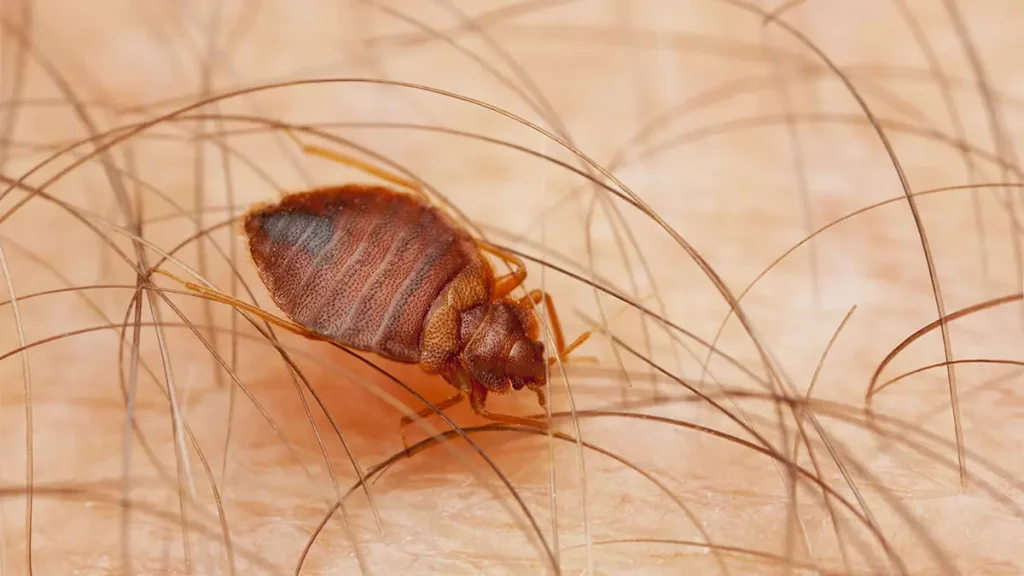
When it comes to pests, bed bugs often evoke feelings of dread. These tiny, nocturnal creatures are known for infesting beds, sofas, and other furniture, feeding on the blood of humans and animals. While their bites are itchy and uncomfortable, many people wonder: are bed bugs really dangerous? After all, they don’t transmit diseases in the same way mosquitoes or ticks do. However, despite their relatively low profile in terms of direct disease transmission, bed bugs present a range of health risks that should not be underestimated.
In this blog post, we’ll explore the potential health risks associated with bed bugs and explain why early detection and professional pest control are essential in managing these pests.
1. Physical Reactions to Bed Bug Bites
The most immediate and obvious health risk associated with bed bugs is the physical reaction to their bites. While bed bugs are not known to transmit diseases like mosquitoes or ticks, their bites can still cause significant discomfort and skin irritation.
- Itchy, Inflamed Bites: Bed bugs feed by piercing the skin with their needle-like mouthparts and drawing blood. This process often leads to an itchy, red welt at the site of the bite. Some people experience mild itching, while others have stronger allergic reactions, leading to more pronounced swelling, redness, and irritation. In rare cases, people may develop blisters or hives around the bite area.
- Allergic Reactions: For some people, bed bug bites can trigger allergic reactions. The symptoms can range from mild swelling and itching to more severe reactions, including difficulty breathing and anaphylaxis, though the latter is quite rare. If you or anyone in your household develops a severe allergic reaction to bed bug bites, seek immediate medical attention.
- Secondary Infections: The act of scratching bed bug bites can lead to skin infections. When the skin is broken from excessive scratching, bacteria can enter the wound, leading to conditions such as cellulitis or impetigo. If left untreated, these infections can spread and require medical intervention, including antibiotics.
2. Sleep Disruption and Psychological Effects
Bed bugs are most active at night, feeding on their victims while they sleep. This nocturnal behavior can lead to significant sleep disruption. The discomfort caused by bed bug bites, along with the fear of being bitten again, can make it difficult to get a restful night’s sleep.
- Insomnia and Anxiety: The presence of bed bugs in the home can cause anxiety, stress, and even insomnia. People who know they have an infestation may find themselves worrying about being bitten every night. This anxiety can negatively impact their ability to sleep, leading to exhaustion, mood changes, and a general decrease in overall well-being.
- Post-Traumatic Stress: For individuals who have experienced a significant bed bug infestation, the psychological impact can be long-lasting. The stress of dealing with a bed bug infestation can lead to post-traumatic stress disorder (PTSD), especially if the infestation is large, persistent, or takes a long time to resolve. The emotional toll can be particularly intense for children and those who are more sensitive to stress.
- Fear of Infestation: The constant fear of a bed bug infestation spreading to other areas of the home, such as the living room or children’s bedrooms, can exacerbate feelings of anxiety. In some cases, people may even develop a psychological condition known as “entomophobia,” or an intense fear of insects, due to a previous bed bug infestation.
3. Spread of Infections and Secondary Diseases
While bed bugs themselves do not carry diseases in the way mosquitoes or ticks do, they can still contribute to the spread of infections and other health problems.
- Bloodborne Pathogens: Though there is no definitive evidence that bed bugs directly transmit diseases such as HIV or Hepatitis B, there is concern about their potential to spread bloodborne pathogens. As bed bugs feed on their hosts, they may come into contact with blood that carries harmful viruses or bacteria. If a bed bug feeds on an infected person, it’s theoretically possible for the insect to spread these pathogens to another person. However, further research is needed to determine the extent of this risk.
- Increased Risk of Infection from Scratching: As mentioned earlier, bed bug bites can lead to itching and scratching, which increases the risk of secondary skin infections. Bacteria such as Staphylococcus aureus, which can cause severe infections, may be introduced into the body if the skin is broken.
- Compromised Immune Systems: For people with weakened immune systems, the stress and irritation caused by a bed bug infestation can be more dangerous. The body’s ability to fight off infections may be compromised, making it more susceptible to infections caused by bacteria, including those introduced through scratched bites.
4. The Emotional Toll of Bed Bug Infestations
While the physical risks associated with bed bugs are a significant concern, the emotional and psychological toll of dealing with an infestation should not be overlooked. The stress and embarrassment of having bed bugs can cause people to avoid seeking help or sharing their situation with others, leading to isolation and worsened mental health.
- Stigma and Shame: Many people associate bed bugs with filth or poor hygiene, but this is a misconception. Bed bugs can infest any home, regardless of cleanliness. Unfortunately, the stigma surrounding bed bugs often causes people to feel ashamed, leading them to delay seeking treatment and professional help. This stigma can also cause anxiety and embarrassment, especially when it comes to hosting guests or staying in hotels.
- Economic Burden: Dealing with a bed bug infestation often requires significant financial investment, especially if the infestation is large or has been ongoing for a long period. The costs of professional pest control treatments, replacing furniture, or laundering clothing and bedding can quickly add up, causing financial stress on top of the emotional strain.
5. How to Protect Yourself from Bed Bugs
Given the potential health risks of bed bugs, early detection and prompt action are critical. Here are some steps to help protect yourself and your home from bed bugs:
- Regular Inspections: Conduct regular inspections of your home, especially if you’ve recently traveled or stayed in hotels. Look for signs of bed bugs, such as bites, fecal stains, eggs, and visible bed bugs on furniture and in bedding.
- Preventative Measures: Use protective mattress covers, seal cracks and crevices in walls and furniture, and reduce clutter to eliminate hiding spots for bed bugs. When traveling, inspect hotel rooms for signs of bed bugs, and keep your luggage off the floor.
- Call a Professional: If you suspect an infestation, contact a professional pest control company as soon as possible. Bed bugs can be difficult to eliminate on your own, and professional treatment is often the most effective way to eradicate them.
Conclusion
While bed bugs aren’t known to transmit diseases like mosquitoes or ticks, they still pose a variety of health risks. From physical reactions to bites and infections to the emotional and psychological toll they take, the dangers of bed bugs should not be underestimated. Early detection, professional pest control, and preventative measures can help protect you and your family from the risks associated with bed bug infestations, ensuring that you don’t let these pests disrupt your health or peace of mind. We recommend bed bug exterminator nyc.






More Stories
How to Turn a Piece of Land Into a Lifestyle
Singapore Apartments Are Getting Smaller — Wall Panels Might Just Be the Smartest Upgrade Yet
Open Fire Maintenance in Lancashire – Don’t Get Burned by Neglect